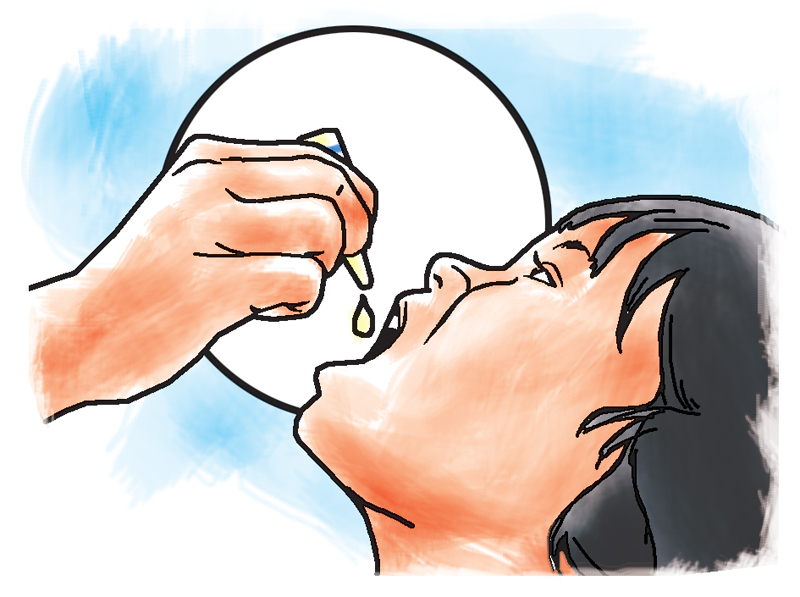Nepal moves closer to polio endgame
Kathmandu, May 18
Implementing a monumental change in vaccination that is expected to bring the world closer to eradicating all types of polio, all 11 countries, including Nepal, in the World Health Organisation South-East Asia Region have switched from using the traditionally used trivalent oral polio vaccine to bivalent oral polio vaccine that protects against the remaining wild poliovirus strains.
According to WHO Regional Office for South-East Asia in New Delhi, the vaccine switch removing ‘type 2’ component of the oral polio vaccine follows global certification of eradication of type 2 wild poliovirus last year.
The switch also aims at drastically reducing the rare risk of children getting paralysis by oral polio vaccine.
The world is closer than ever before to ending polio. The switch is a critical step in the Polio Endgame Strategy towards achieving a world free of all types of polioviruses.
The polio vaccine switch, which is complemented with introduction of injectable inactivated polio vaccine, will boost the region’s efforts to protect children against polio until the crippling disease is eradicated globally.
The region was certified polio-free in March 2014 and continues to maintain polio-free status, despite the risk of importation from the polio-endemic countries.
Efforts are ongoing to protect children with polio vaccine, increase routine immunisation coverage, focus on the most vulnerable and hard to reach population and step-up vigil against poliovirus importation.
“I would like to congratulate all countries in the region for successfully implementing the polio vaccine switch, which is the biggest globally coordinated project of its kind in the history of vaccines involving over 150 countries,” said Dr Poonam Khetrapal Singh, WHO regional director for South-East Asia in a press statement issued today.
Countries in the region made extensive preparations, meticulously planned and implemented the switch in the childhood immunisation programme, which reaches out to an estimated 37 million children in the 11 countries of the region annually.
“Timely completion of the vaccine switch process is another strong indication of the region’s commitment to remaining polio-free and contributing to a polio-free world,” she said.






